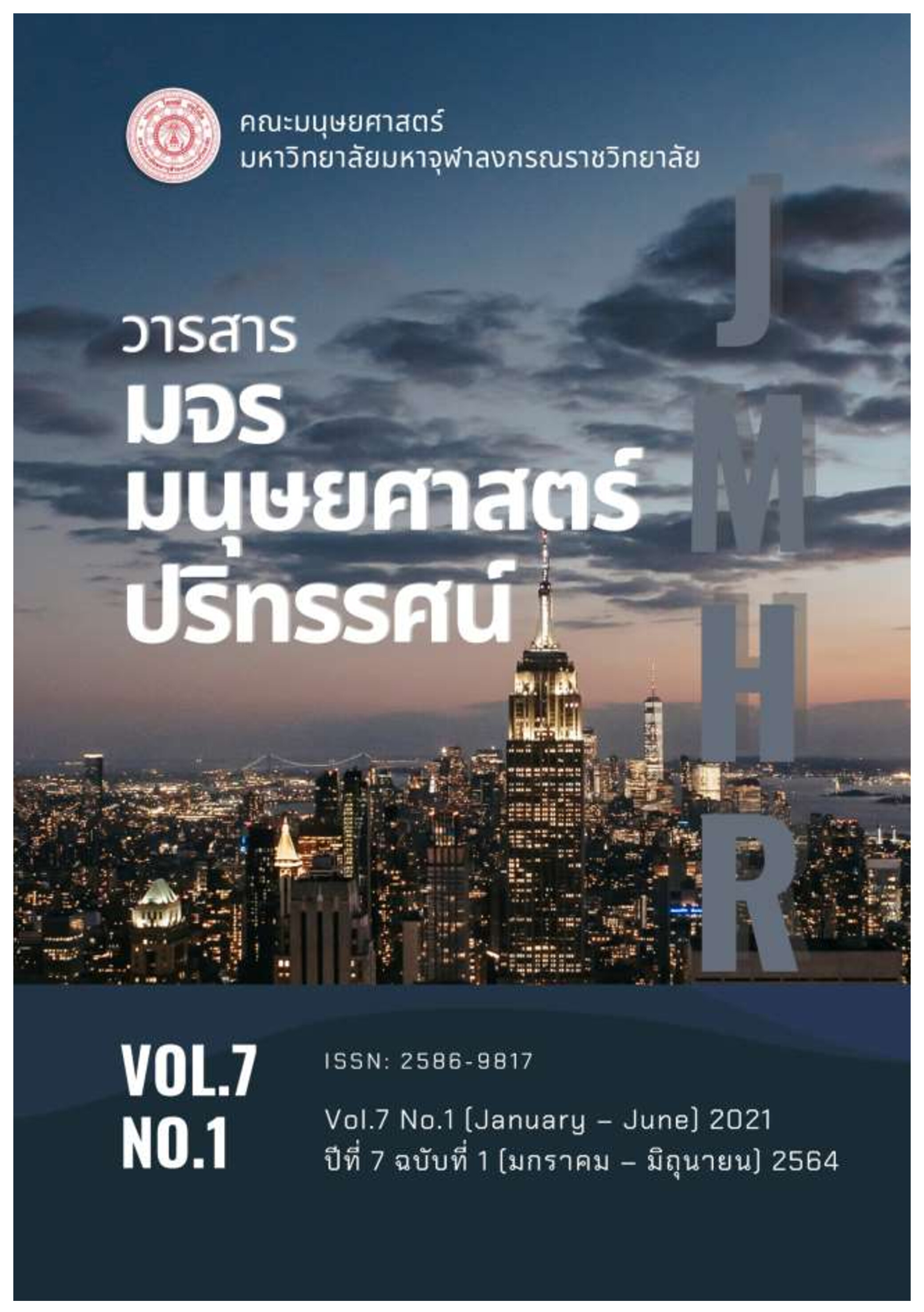แนวทางการพัฒนาการปฏิบัติธรรมตามหลักพุทธจิตวิทยาสำหรับประชาชนในจังหวัดลพบุรี
คำสำคัญ:
การพัฒนา, การปฏิบัติธรรม, หลักพุทธจิตวิทยา, ลพบุรีบทคัดย่อ
การศึกษาวิจัยเรื่อง แนวทางการพัฒนาการปฏิบัติธรรมตามหลักพุทธจิตวิทยา สำหรับประชาชนในจังหวัดลพบุรี มีจุดมุ่งหมายเพื่อศึกษาสภาพการจัดปฏิบัติธรรมของคณะสงฆ์ แลความต้องการของประชาชนต่อการฝึกปฏิบัติธรรมในจังหวัดลพบุรี เพื่อศึกษาปัจจัยเชิงพุทธจิตวิทยาที่ส่งเสริมการปฏิบัติธรรมเพื่อการพัฒนาประชาชน และเพื่อเสนอแนวทางการปฏิบัติธรรมตามหลักพุทธจิตวิทยาสำหรับประชาชนในจังหวัดลพบุรี โดยรูปแบบการวิจัยแบบผสมวิธี คือ การวิจัยเชิงปริมาณ ใช้แบบสอบถาม กลุ่มตัวอย่าง ได้แก่ ประชาชนที่มาปฏิบัติธรรมในวัดที่มีการจัดปฏิบัติธรรมในจังหวัดลพบุรี จำนวน 100 คน และการวิจัยเชิงคุณภาพ ใช้การสัมภาษณ์แบบมีโครงสร้าง ผู้ให้ข้อมูลสำคัญ ได้แก่ เจ้าสำนักปฏิบัติธรรม จำนวน 5 รูป สถิติที่ใช้ในการวิจัย ได้แก่ ค่าความถี่ (Frequency) และค่าร้อยละ (Percentage) ค่าเฉลี่ย () และส่วนเบี่ยงเบนมาตรฐาน (S.D.) พบผลการวิจัยดังนี้
- ความพึงพอใจต่อสภาพการจัดปฏิบัติธรรมภาพรวมอยู่ในระดับมาก
- ปัจจัยเชิงพุทธจิตวิทยาที่ส่งเสริมการปฏิบัติธรรมเพื่อการพัฒนาประชาชน พบว่า ยังขาดเทคนิคและวิธีการที่ดีบางส่วนในการจัดปฏิบัติธรรม
- แนวทางการปฏิบัติธรรมตามหลักพุทธจิตวิทยาสำหรับประชาชนในจังหวัดลพบุรี ด้านสถานที่ควรจัดการบริเวณสถานที่ของสำนักปฏิบัติธรรมให้เป็นสัปปายะ ด้านห้องน้ำ ห้องสุขา ควรแยกประเภทผู้ใช้เป็นสัดส่วนสำหรับเพศชาย-หญิง ควรส่งเสริมพัฒนาบุคลากรภายในสำนักปฏิบัติธรรมให้มีคุณภาพ โดยใช้หลักธรรมอิทธิบาทสี่ การจัดกระบวนการเรียนรู้ ควรสอนโดยคำนึงถึงความแตกต่างระหว่างบุคคล ควรมีการประสานงานกับชุมชนให้เข้ามีส่วนร่วมในกิจกรรมในรูปแบบของคณะกรรมการดำเนินงาน ควรมีการจัดทำสื่อการสอน มีการประชาสัมพันธ์กิจกรรมการจัดปฏิบัติธรรม และควรมีองค์กรหลัก เข้ามาดูแล ติดตามผล แก้ไขปัญหา สนับสนุนส่งเสริมปรับปรุงสำนักปฏิบัติธรรม
เอกสารอ้างอิง
นิภาภัทร อยู่พุ่ม. (2557). พุทธจิตวิทยากับการพัฒนาชีวิต และสังคมไทย. วารสารสถาบันพิมลธรรม, 1(2), 133.
ประกาศิต ประกอบผล. (2560). การพัฒนาคุณภาพจิตตามแนววิปัสสนากรรมฐาน. วารสารวไลยอลงกรณ์ปริทัศน์ (มนุษยศาสตร์และสังคมศาสตร์), 7(3), 86.
พระครูใบฎีกาหัสดี กิตฺตินนฺโท. (2562). การพัฒนาจิตตามแนวพระพุทธศาสนา. สืบค้น 5 สิงหาคม 2562, จาก http:/www.mcu.ac.th/article/detail/267.
พระครูภาวนาวีรานุสิฐ วิ..(2560). กระบวนการให้คำปรึกษาเชิงพุทธจิตวิทยา. วารสารบัณฑิตศึกษาปริทรรศน์, 13(3), 146.
พุทธชญานันท์ จันทร์โสม, พระครูสุธีคัมภีรญาณ และประยูร แสงใส. (2560). แนวทางการปฏิบัติกรรมฐานเพื่อพัฒนาจริยธรรมของวัดนาหลวงอภิญญาเทสิตธรรม ตำบลคำด้วง อำเภอบ้านผือ จังหวัดอุดรธานี. วารสารวิชาการธรรมทรรศน์, 17(3), 239-240.
สำนักงานคณะกรรมการพัฒนาเศรษฐกิจ และสังคมแห่งชาติ. (2559). แผนพัฒนาเศรษฐกิจและสังคมแห่งชาติ ฉบับที่สิบสอง พ.ศ.2560-2564. กรุงเทพฯ : สำนักนายกรัฐมนตรี.
สุรีย์ มีผลกิจ และวิเชียร มีผลกิจ. (2553). พระพุทธกิจ 45 พรรษา. กรุงเทพฯ : บริษัท คอมฟอม จํากัด.
อารีย์ เกาะเต้น และกฤษฎา นันทเพ็ชร. (2561). การพัฒนารูปแบบการบริหารศูนย์ปฏิบัติธรรมในประเทศสหรัฐอเมริกา, วารสารสันติศึกษาปริทรรศน์, 6(4), 1455.






